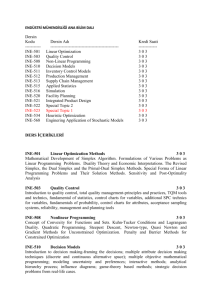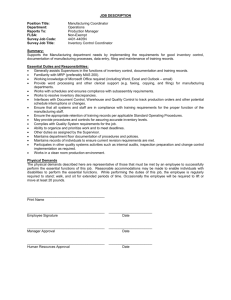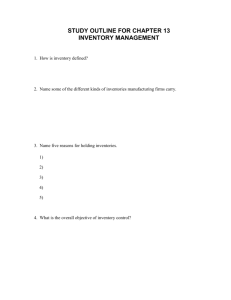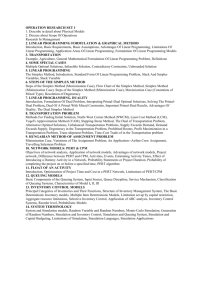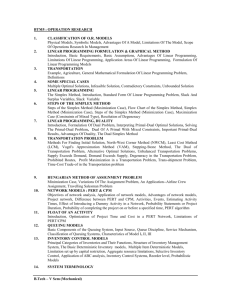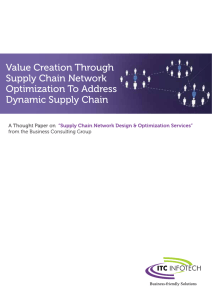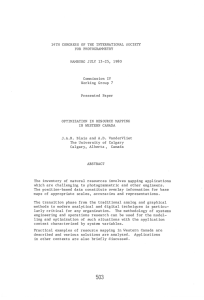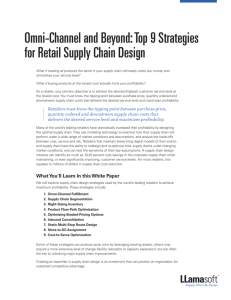mat314 course compact college
advertisement
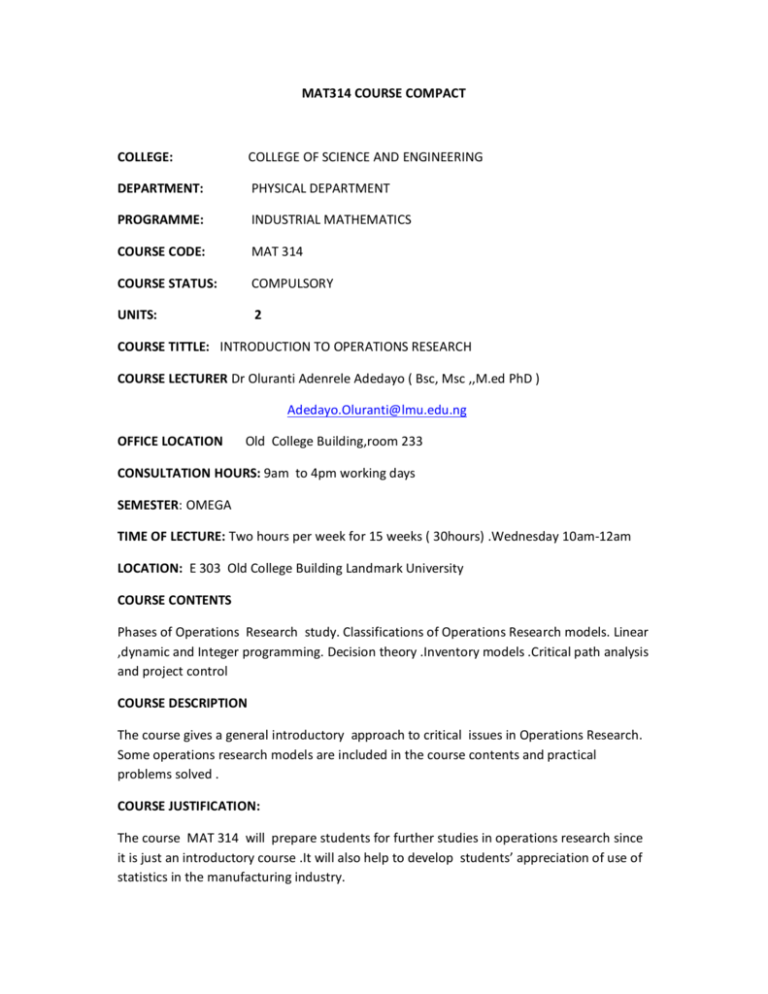
MAT314 COURSE COMPACT COLLEGE: COLLEGE OF SCIENCE AND ENGINEERING DEPARTMENT: PHYSICAL DEPARTMENT PROGRAMME: INDUSTRIAL MATHEMATICS COURSE CODE: MAT 314 COURSE STATUS: COMPULSORY UNITS: 2 COURSE TITTLE: INTRODUCTION TO OPERATIONS RESEARCH COURSE LECTURER Dr Oluranti Adenrele Adedayo ( Bsc, Msc ,,M.ed PhD ) Adedayo.Oluranti@lmu.edu.ng OFFICE LOCATION Old College Building,room 233 CONSULTATION HOURS: 9am to 4pm working days SEMESTER: OMEGA TIME OF LECTURE: Two hours per week for 15 weeks ( 30hours) .Wednesday 10am-12am LOCATION: E 303 Old College Building Landmark University COURSE CONTENTS Phases of Operations Research study. Classifications of Operations Research models. Linear ,dynamic and Integer programming. Decision theory .Inventory models .Critical path analysis and project control COURSE DESCRIPTION The course gives a general introductory approach to critical issues in Operations Research. Some operations research models are included in the course contents and practical problems solved . COURSE JUSTIFICATION: The course MAT 314 will prepare students for further studies in operations research since it is just an introductory course .It will also help to develop students’ appreciation of use of statistics in the manufacturing industry. COURSE OBJECTIVES At the end of the course the students should be able to 1. 2. 3. 4. 5. 6. Understand the history of Operations research Identify some important Operation research models Solve various optimization problems using Operations Research models Appreciate the importance of Operations research in decision-making Solve practical problems on Operations Research models Use appropriate software to solve problems in Operations Research COURSE REQUIREMENTS 1 Possession of computers with installed OR software essential. 2. Attendance at lectures and practicals compulsory 3 Minimum of 75% attendance at lectures required in order to pass the course METHOD OF GRADING S/N 1 2 3 GRADING TEST ASSIGNMENT FINAL EXAMINATION SCORE(%) 20 10 70 C. METHOD OF LECTURE DELIVERY/ TEACHING AID COURSE OUTLINES 1.Interactive Lecture Method using relevant teaching aids. 2.Peer tutoring with group assignment 3.Discovery method using relevant materials from the Internet 4. Practicals on use of Operation Research software packages TUTORIALS Group and individualized assignments given during tutorials on theory and practice of topics taught in class. Peer-tutoring encouraged during tutorials. Tutorials on take-home practical assignments to be done every week LECTURE CONTENTS ON WEEKLY BASIS WEEKS 1-2 General introduction to the course. History of Operations Research(OR); uses and methodology of OR;Modelling in OR.steps taken in modeling.classification of models OBJECTIVES: To introduce students to the origin and development of OR To explain how models are classified WEEKS 3-4 Linear programming model: uses ,requirements, assumptions, components and limitation. Formulation of models and optimization techniques for maximization and minimization problems .Simplex method. OBJECTIVES Students will be able to: 1. State the characteristics of each of the models. 2. Solve optimization linear programming models using graphical, algebraic and simplex methods 3. To solve practical problems with the model using manual computations and software packages WEEKS 5-6 Transportation model: model formulation, developing initial feasible solution using North West corner ,Least Cost and Vogel’s approximation methods, use of Modified Distribution method OBJECTIVES Students will be able to: 1. Formulate a transportation model using given information 2. Carry out necessary computations on transportation model using various methods WEEK 7-8 Assignment model: linear programming method; complete enumeration method ;Hungarian method ,Branch and Bound method. special types of assignment problems OBJECTIVES: Students will be able to: 1. Solve assignment problems using various methods 2. Solve problems with unequal rows and columns 3. Use computer software to solve assignment models WEEK 9 Mid-semester test WEEK 10 Decision analysis :phases, structure and types of decision environment .Maximax , maximin, Hurwicz ,minimax regret and Laplace criteria. Concept of Dominance. Perfect information, decision trees Bayes decision rule OBJECTIVES: Students will be able to: 1. 2. 3. 4. 5. Describe the structure of a decision problem State the various types of decision environments Solve decision analysis problems using any of the stated criteria Make appropriate use of decision trees Solve practical problems using Bayes decision rule WEEK 11 Inventory models; advantages and disadvantages of inventory ,EOQ and EBQ models, JIT inventory models OBJECTIVES Students will be able to: 1. State the advantages and limitations of the inventory models 2. Use various inventory models to solve practical problems WEEKS 12-13 Network analysis: Definition of terms used in network analysis, characteristics of project and project manager, construction of networks, Critical Path Method (CPM) and Project Evaluation and Review Technique (PERT) OBJECTIVES: Students will be able to; 1. 2. 3. 4. 5. 6. Define terms used in Network Analysis State the qualities desired in a good project Construct networks form given information Use the CPM to solve practical problems on projects Solve problems using PERT Use appropriate OR software to solve problems on Network Analysis WEEK 14 Revision WEEK 15 Examinations READING LIST 1. Operations Research in Decision Analysis and Production Management by Adedayo et al 2 Operations Research: Applications and Algorithms by Wayne,l 3 Introduction to Operations Research by Hillier, F.S 4 Operations Research: Deterministic Optimization Models by Murty,K.G



